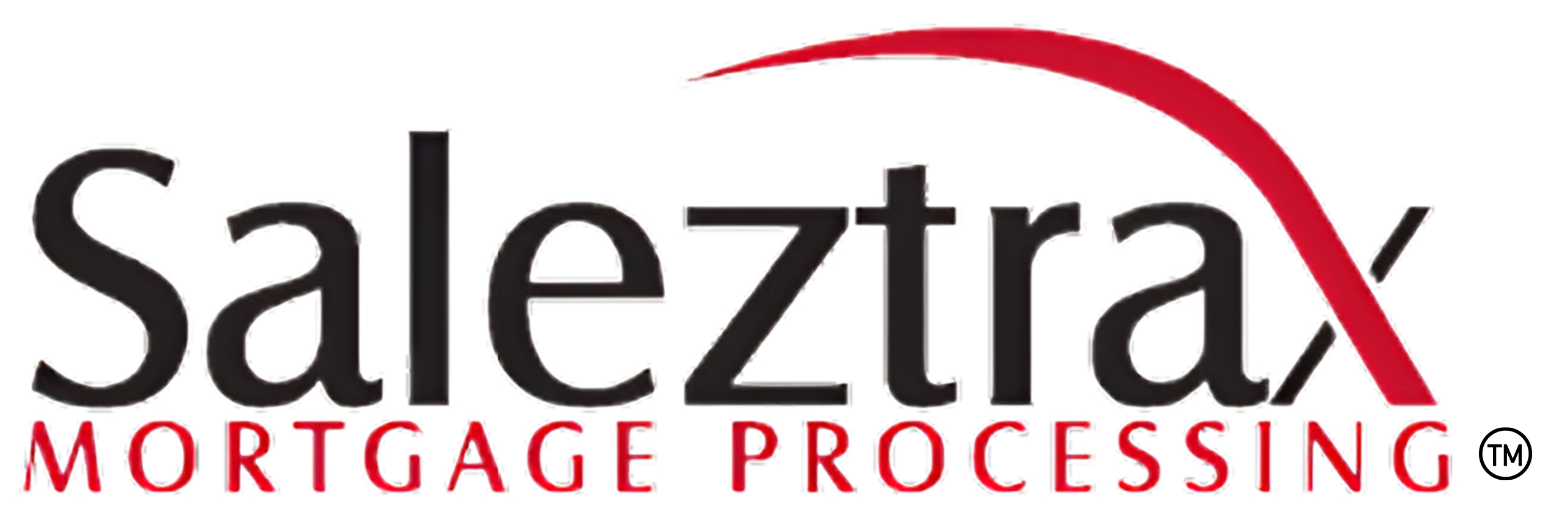Step 1 of 5
The Loan Application Process
First, you complete the loan application with your loan originator, this is the foundation of the loan processes, and much like a foundation, accuracy is critical. Watch our short video below to learn more about what will be asked of you, what you can do to make the process run smoothly, and how to expect the unexpected.
Why This Step Is Important
The loan application process helps a loan officer determine how much money you make, how much you spend, and calculate your borrowing power. Without the loan application, it would be impossible for a lender to establish terms for your loan.
What You Will Be Asked To Do
You will be asked to provide details of your financial situation. It starts with personal information like date of birth, social security number, citizenship, marital status, dependents, residency address history, military service, employment history, etc. You will be asked about your income from W2 employment, 1099 employment, and other income sources.
You will be asked about student loans, car loans, credit card debt, alimony, child support, and any other debts. Lastly, you will be asked several declaration questions like have you declared bankruptcy, will this be your primary residency, are you related to the seller, etc.
What You Can Do To Make The Process Run Smoothly
Complete everything and be honest. During underwriting, the underwriter will pull your public records and verify every question you answered. They will find all liens against you, past bankruptcies, alimony payments, credit issues, and credit liabilities that were undisclosed.
If you complete all the information accurately, you have a better chance of qualifying for a mortgage. If you speed through the application and miss something, it can cause problems later on in the process. Be prepared to start uploading documents. This may include bank statements, photo identification, retirement statements, pay stubs, W-2s, and tax returns. Self-employed individuals may need to supply P&L statements and business tax returns. How you answer the questions on the application will determine what documents you need to provide.
Expect The Unexpected
Most borrowers are surprised by the number of documents they need to provide and the required details to start the loan process. Expect to provide your entire tax return along with every schedule. Expect to provide bank statements with every page attached, not just the summary. Expect to provide documentation about every asset and liability listed on your application. Remember, application to closing can take as little as 14 days or many months, depending on your circumstances. During that time, you will be asked to provide updated statements. All the lender can do is take a snapshot of your financial situation at a given time. If the documentation gets stale, they will ask for the most recent documents.
Step 2 of 5
The Documentation Process
Next, you will work with a processor to gather all the documentation that supports the information provided in the application. Documentation is the framework that gives the loan shape much like the framing of a home. Watch our short video below to learn more about what will be asked of you, what you can do to make the process run smoothly, and how to expect the unexpected.
Why This Step Is Important
The documentation verifies the story that you told during the application process. If you make $60,000 a year, your pay stubs and W2 will reflect the information provided. If you have a car payment of $300/mo, your credit report will let the lender know about that liability. Documentation tells the story about how much you make, how much you owe, and how much you can borrow.
What You Will Be Asked To Do
You may be asked to upload documents that were not provided during the application process. Your loan processor will also gather additional information from third-party sources and may ask you to provide other documentation for clarification.
What You Can Do To Make The Process Run Smoothly
Respond quickly to all requests for documentation. Sometimes pages don't scan correctly, files get corrupt, or our processors need to request documents that don't make sense to a borrower. Remember, your processor knows what underwriting is going to ask for based on your application. Sometimes these requests don't make logical sense, but they do make regulatory/compliance sense. It is always essential that you respond quickly.
Expect The Unexpected
Most borrowers are surprised by the detail of documentation they need to provide. Your loan processor will ask for every page of your bank statement, not just a summary. If you received a large deposit from a relative, the processor might need additional documentation, including bank statements from the source of the deposit. This is not only to get an accurate picture of your finances but is also a post 9/11 anti-terrorism regulation. Please don't redact information on any document, it will invalidate the document. You need to provide all documents in their entirety. And remember, your processor is here to help you qualify for a loan. They know what the underwriter is going to request. The processor can assist as you gather documents or advise as issues arise. It is much harder to address the problems after the documentation has been sent to underwriting.
Step 3 of 5
Underwriting
The underwriter will take all the documentation, verify the accuracy of the documentation, and organize the information, so it complies with various regulations depending on the loan type. Think of this as the construction of the exterior walls and roofs. The underwriter puts everything together so you can finance your home. Watch our short video below to learn more about what will be asked of you, what you can do to make the process run smoothly, and how to expect the unexpected.
Why This Step Is Important
Up to this point, you've been working with people who work for you. Now it is time for an independent underwriter to review the documents and verify everything is accurate.
What You Will Be Asked To Do
Wait and be patient. At this point, it is out of the processor's hands. The underwriter is pulling public records, titles and accessing various databases to verify your application. They will dig deeper into the documentation and look for irregularities like a lien or bankruptcy that wasn't disclosed. Generally, they will not reach out to the processor until they have a complete list of dispositions and conditions.
Underwriting may also be waiting on an appraisal, clear title search of the property, proof of homeowner's insurance, proof of any required repairs, and other third-party documentation as stipulated in your contract that may affect the home's value.
What You Can Do To Make The Process Run Smoothly
Schedule inspections, appraisals, and any other contingencies as quickly as possible. Make sure you are copying your realtor, loan originator, and loan processor on all communications. You might not think it's a big deal, but when you let everyone know about a scheduled task, they know when to follow up and can communicate with the underwriter to assure a smooth process.
Expect The Unexpected
There are many moving parts during the underwriting step in the home financing process. Expect at least one thing to not go in your favor. A challenge that may arise might be the home failing an inspection and repairs needing to be made before the lender will approve the financing. It might be an appraisal valuation that is under the price you offered. Closing dates might get pushed back because of some other contingency or issue. While these issues are unexpected, your team has experience dealing with all kinds of unexpected situations. Now is the time to ask questions and trust your team's expertise.
Step 4 of 5
Loan Disposition & Clarification Of Documents
The underwriter is going to make requests during the disposition and clarification of documents. Your processor will coordinate with you and the underwriter to ensure all requests are processed. You may be asked to provide additional documentation or letters of clarification depending on what the underwriter needs. Think of this step as all the finishing work, fixtures, and details that complete a home. It is gathering the facts that require extra effort.
Why This Step Is Important
This is the opportunity for the underwriter to clarify and resolve any concerns that were discovered during underwriting.
What You Will Be Asked To Do
In our experience, clarification of documentation is the most frustrating for our borrowers. You may be asked to write a letter that you sold your house 5 years ago even though you provided documentation in step 2. If you have a joint bank account, a joint access letter may be requested to confirm you have complete access to all the funds. Your employer might need to write a letter of clarification regarding your income, and there might be requests for other documentation that seems unusual.
What You Can Do To Make The Process Run Smoothly
Respond quickly to all requests for documentation.
We've noticed that borrowers start to get fatigued during the clarification step in the process. That fact, coupled with the unusual requests, becomes frustrating. This is perfectly normal. But to keep the financing moving, it is critical that you quickly respond to all the requests. If they ask for your dog's date of birth, just give it to them. The underwriter is in control, and the faster you respond, the quicker the process can move forward.
Expect The Unexpected
Most borrowers are surprised by the details the underwriter uncovers. A vacation home that sold last year slipped your mind, but the underwriter wants to know about it. Past lawsuits, property liens, old bankruptcies, divorces, and other financial situations need clarification. While these requests for clarification are unexpected, your team has experience dealing with all kinds of issues. Now is the time to ask questions, trust the experience of your team, and respond quickly!
Step 5 of 5
Clear To Close & Closing
Finally, you will get to the final step in the process, clear to close. Think of it as the final walkthrough before the house is finished. Everyone wants to make sure nothing has changed, and the loan can be closed.
Why This Step Is Important
Unusually, nothing changes, but the lender will contact your employer to confirm you are still employed and refresh your credit to confirm no new liabilities. However, on occasion, someone unexpectedly loses a job, makes a significant purchase, obtains new credit, or some other event occurs that can impact the loan decision days before closing.
What You Will Be Asked To Do
There may be a need for updated or new documentation, a copy of your most recent bank statements, mortgage statements, pay stubs, or a new creditor statement.
What You Can Do To Make The Process Run Smoothly
Respond quickly to all requests for documentation. Notify Human Resources or your employer that the underwriter will be calling to verify employment, and don't make any changes to your finances. Even a $1000 line of credit at Home Depot can disrupt the process.
Expect The Unexpected
It is rare that there are issues at the very end of the process. However, when you've processed as many loans as we have, you experience a thing or two. If you have an issue at the 11th hour, take a deep breath and know that you have a team of experts behind you. We will work through any last-minute hiccups and get your loan completed.
Got Questions About The Home Financing Process?
If you still have questions about the financing process, reach out to one of our experienced loan processors. We will be happy to answer any question that you might have.






